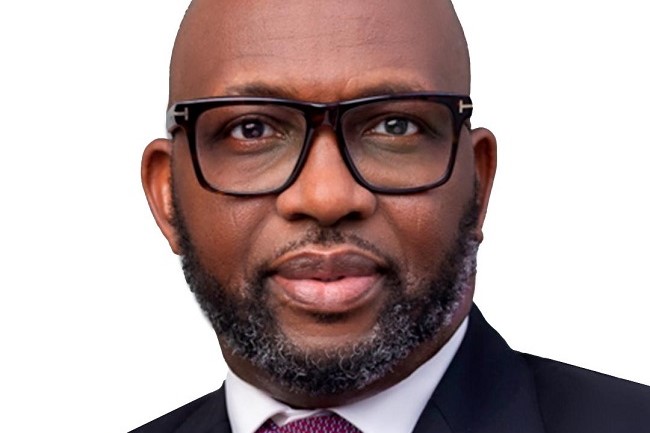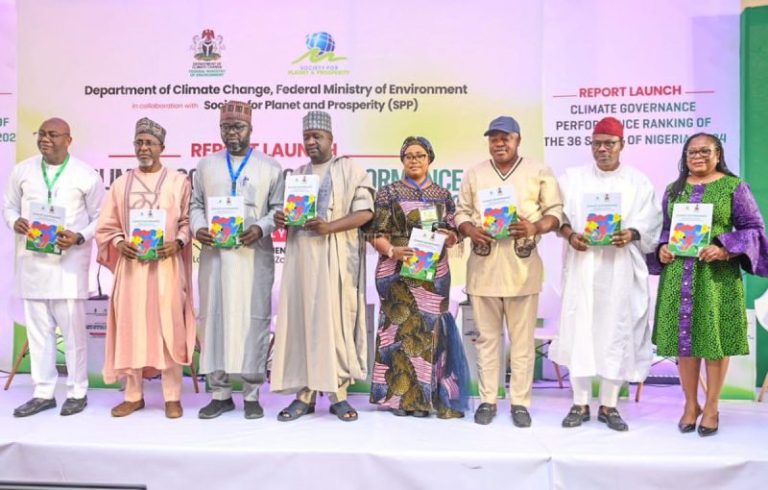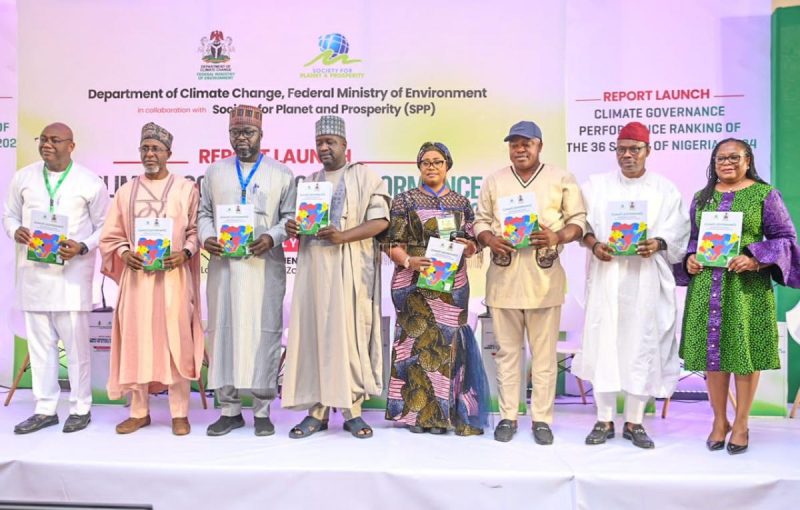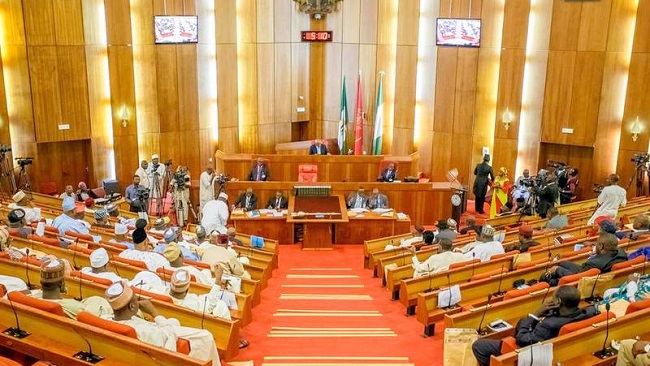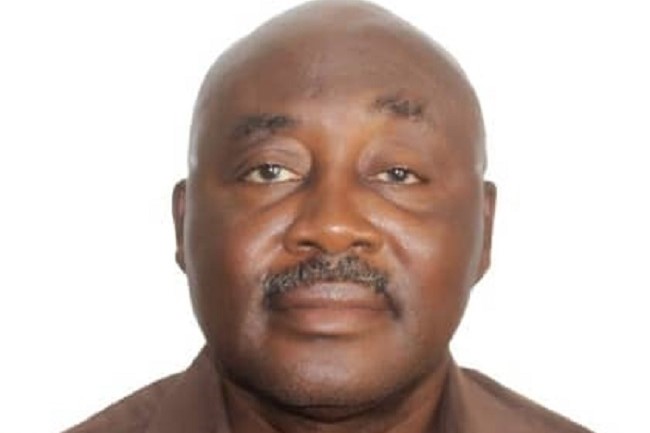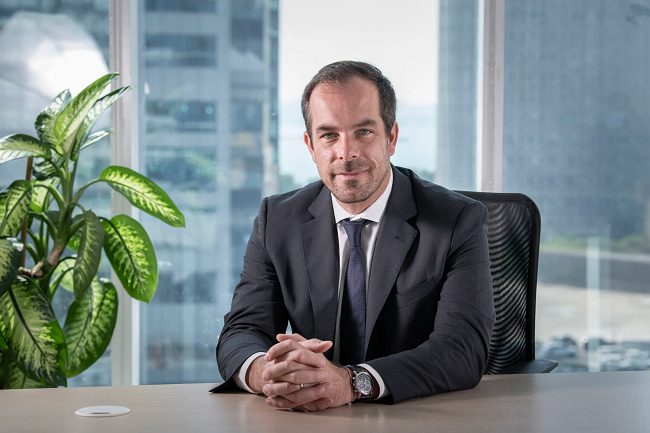Developing country representatives on the Board of the UN’s Fund for responding to Loss and Damage (FRLD) have issued a critical joint statement expressing concerns over the scale and status of resources, noting that a lack of transparency from contributors is “severely limiting” the ability to program funds and reducing confidence in the long-term commitment of partners. The statement was issued during the Fund’s 6th Board Meeting in Cebu, Philippines.

The statement from the developing country constituency highlights that while funding needs for economic damages alone are estimated to be around $395 billion in 2025, only $348 million is currently available in the Fund. This comes after total pledges of $788.68 million, revealing a significant gap between promises and payments. The constituency underscored the “urgent and immediate need for new, additional, predictable and adequate financial resources” to help developing countries respond to escalating climate disasters.
The developing country constituency maintains its position that the Fund must programme at least $100 billion a year by 2030 as a minimum and called for the Board to shift its priorities towards launching an initial capitalization and replenishment process that goes “far beyond the initial pledges.”
The press conference featured an important video statement from Jotham Napat, Prime Minister of Vanuatu, who highlighted the need to scale up funds to address the actual needs of developing countries.
NEW Global Campaign – “FILL THE FUND” Launched
In direct response to this crisis of inaction, a global coalition of climate justice movements and civil society groups representing thousands of organisations launched “Fill The Fund,” a new global campaign to demand wealthy nations and corporate polluters meet their historical responsibility to pay for the climate crisis.
Jotham Napat, Prime Minister of Vanuatu, in a recorded statement: “Pledges alone cannot rebuild what has been erased by the climate crisis in Vanuatu and across the world. A single cyclone caused over $500 million in damages, yet we are capped at receiving just $20 million a year from the Loss and Damage Fund.
“The question now is whether the fund will be able to mobilize the scale of resources needed to meet the moment and deliver – especially when we consider that children in developing countries suffer more than $400 billion in impacts annually.”
Elena Cristina Pereira Colindres, FRLD Board Member (Honduras), speaking on behalf of the G77 constituency: “The current financial situation and the lack of clarity on the overall scale of the Fund will likely affect the start-up phase and the long-term scaled financing needed from the Fund.
“We therefore raise the question of whether the Board should now shift its priorities towards launching an initial capitalisation and replenishment process of new, additional, predictable, and adequate resources at a scale that goes far beyond the initial pledges.”
Richard Sherman, Co-Chair, FRLD Board (South Africa), speaking in his national capacity: “We have to build the abacus, so to speak, of the fund’s financial architecture: how we mobilise money, how we bank contributed funds, and how we disperse money to countries. Although this is a small step, it has a big, big, big footprint.
“We need to continue our work with vigilance, and with the support of civil society all around the world, to ensure the fund remains accessible, open, and inclusive—which is not necessarily a simple thing to do.”
Ambassador Elizabeth Thompson, FRLD Board Member (Barbados): “Middle-income nations like Barbados are on the frontlines of climate impacts, yet we often cannot access the finance needed. When Hurricane Beryl struck us, we lost 90% of our fishing fleet and significant coastal infrastructure.”
“That is why the Board’s decision in Barbados this past April was a critical step forward: it established the Barbados Implementation Modalities (BIM) and, crucially, ensured that 50% of the funding goes to LDCs and SIDs as grants, not loans.”
Daniel Lund, FRLD Board Member (Fiji): “Our red line- the imperative to keep the global average temperature rise below 1.5 degrees – is on the brink of being breached. Recent science suggests that an overshoot may be unavoidable.”
“This must be a fund that works differently and thinks differently; one that can effectively work with national systems and be responsive to the needs on the ground. We must incentivize social protection and avoid the fragmentation and administrative burden that the current project-based financing regime continues to create.”
Harjeet Singh, Convenor of the new Global Campaign “Fill The Fund” on Loss and Damage Finance, and Founding Director of Satat Sampada Climate Foundation said at the launch event: “The creation of this Fund was a historic victory, but it will be a meaningless one if it is not filled with new, additional, and accessible public grants. This campaign will unite the voices of thousands of organizations to demand that developed countries stop shirking their responsibilities.
“The ‘Fill The Fund’ campaign will coordinate global advocacy, track pledges and payments through a public dashboard, and mobilize citizens to pressure governments ahead of key moments, including the COP30 climate conference in Belém, Brazil.”
Claire Miranda, Deputy Programme Manager for Climate Justice, APMDD (Philippines) and member of the Global Campaign to Demand Climate Justice (DCJ): “It is significant that the FRLD Board is meeting here in Cebu, one of the cities hardest hit by Super Typhoon Rai in 2021, which left a vast trail of death and devastation across our country.
“Bringing the Board discussions here is not just symbolic; it is a reminder of who this fund must serve. But symbolism is not enough. We need substance. We need decisions that move us from delay to delivery, from pledges to actual contributions, and from rhetoric to real reparations. We need to fill the fund.”
Tasneem Essop, Executive Director, Climate Action Network International: “The establishment of the Loss and Damage Fund was a major political achievement, thanks to the leadership and pressure from civil society and developing countries. However, the real test will be how this Fund is filled. With increasingly devastating climate impacts, felt mainly in the Global South, we are talking billions, not millions, that are needed for recovery and rebuilding.
“Rich nations, who caused harm historically, must pay up. We are talking about public, grants-based finance. The attempts by the World Bank to get the private sector involved in financing the Fund is yet another escape clause for rich nations. You cannot profit off of suffering. Rich nations must pay their dues. They can find the money to fund wars and subsidise fossil fuels, so there can be no argument that there is no money.”
Brandon Wu, Director of Policy and Campaigns, ActionAid USA: “When rich countries say they don’t have the money to contribute to global climate solutions, it’s a bluff. In this fiscal year alone, the US government plans to spend nearly $200 billion on border security and immigration enforcement. That is almost 11,000 times more than its paltry $17.5 million contribution to the Loss and Damage Fund – money that will go towards persecuting everyday people rather than supporting their needs.
“This has never been about a lack of resources; it has always been about a lack of political will. When those in power decide something is a priority, they can mobilize untold amounts of money at the drop of a hat. It’s time that rich countries choose to prioritize survival and dignified life for billions of people around the world. Living up to their obligations to contribute to the FRLD is a core part of that choice.”
Liane Schalatek, Associate Director, Heinrich Böll Foundation Washington, DC, said: “Only 358 million US Dollar in the bank when at least the same number in billions is needed per year – this is the sad state of efforts to mobilize financing to #FillTheFund for responding to Loss and Damage (FRLD).
“Announced with much fanfare at COP28 in Dubai 20 months ago, developed countries have so far failed to fulfill their legal obligation and moral duty to help marginalized people and vulnerable communities in developing countries to cope with ever more devastating extreme weather events with hurricanes, floods and droughts, glacier melt and sea level rise, and more and more lives and livelihoods lost. No more excuses and evasions.
“We need public grant finance delivered to the Fund in the billions as a matter of urgency and climate justice. If countries in the Global North can find money for military expansion, subsidizing fossil fuels, beefing up border controls and tax gifts for the richest, they can summon the resources to #PayUp4LossAndDamage – NOW!”
Chiara Liguori, Climate Justice Senior Policy Adviser, Oxfam GB: “The establishment of the Fund for Responding to Loss and Damage in 2022 was hailed as a historic moment. But little money has followed since then. We have only seen more excuses and delaying tactics.
“What would be really historic now is for rich countries to live up to their responsibilities, honour their obligations and pay up for the losses and damages they have caused. Only this would ensure justice to the people left displaced, hungry or sick by the reckless behaviour of the richest and biggest polluters.”
Lien Vandamme, Senior Campaigner, Center for International Environmental Law, said: “States and corporations with historic and current responsibility for the climate crisis have legal obligations to pay for the damage. While we celebrated the historic step taken at COP27 to establish a Loss and Damage Fund, this fund remains an empty shell and people and communities on the frontlines of the climate crisis have yet to receive the first penny.
“2025 is the year to change this: as countries are discussing how to scale up resources of the Loss and Damage Fund, international courts are confirming State obligations to repair climate and environmental harm, at home and abroad. COP30 must tie all of this together and deliver a clear path forward towards the urgent delivery of hundreds of billions needed annually. The delay must end and polluters must pay.”
Brenda Mwale, Finance Lead, Loss and Damage Collaboration, said: “Adequate funding for the Loss and Damage fund is not merely a financial necessity; it constitutes human rights and legal imperative to address the disproportionate impacts of climate change on vulnerable nations. Sufficient resources are essential for supporting recovery efforts, and ensuring a more equitable global response to climate-induced disasters.
“The current state of resources in the Fund highlights the reluctance of developed countries to assume responsibility and support frontline communities at the scale required. This issue should be treated with urgency and see the delivery of Loss and Damage scale of at least 400 billion USD a year. The response to COVID-19, demonstrated the capacity and availability of resources to support vulnerable communities. The money is there! ”
Ineza Umuhoza Grace & Nicolas Gaulin, Global Coordinators, Loss & Damage Youth Coalition, said: An empty Fund means more droughts, floods, and temperature extremes. An empty Fund means broken homes, displaced families, and unchecked destruction and disease. An empty Fund means foregoing development to pay for a crisis the primary victims didn’t create. An empty Fund means developed countries continue to downplay and reject their historical responsibility in fueling the climate crisis. An empty Fund means no trust in real action. Developing countries and frontline communities have the right to new, additional, predictable, public, grants-based and easily accessible funds to survive and thrive.
“These funds are neither charity, nor development aid or investment opportunities. These funds are meant for equitable climate action that addresses real pain at the frontlines. Nothing short of trillions will rectify this egregious breach of justice and global solidarity, consistently perpetuated by a collective of wealthy nations. The Fund must be filled today, tomorrow, and until it matches the scale of needs on the ground.
Nithi Nesadurai, Director & Regional Coordinator, Climate Action Network Southeast Asia, said: “Given the increasing frequency of extreme weather events and their rising intensity, which are aggressively adding to the loss and damage being incurred in the developing world in particular, it is imperative that developed countries meet their obligations by contributing significantly to the Fund with immediate effect. Delay tactics cannot be tolerated anymore.”
Dr. Isatis M. Cintron-Rodriguez, Founder and Director, Climate Trace, Puerto Rico, said: “Trust is in high demand and as the currency for climate justice it hinges on developed countries stepping up with public finance that is new, additional, high quality, non-debt inducing, and commensurate with the harm incurred. Anything less risk turning a promise into betrayal for the world’s most affected communities.”

